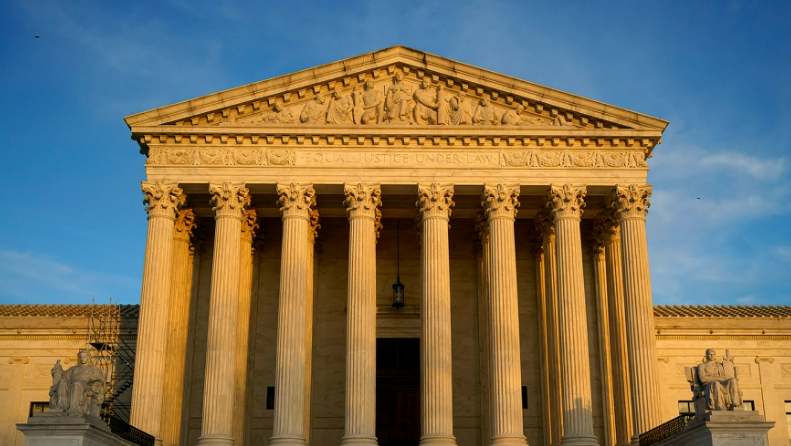Next week, the Supreme Court is set to hear arguments in appeals from the Biden administration of lower court rulings blocking his $430 billion student loan cancellation plan. The program is intended to ease the financial burden weighing on millions of Americans but Republicans have criticized it as an overstep of presidential authority. The Supreme Court is set to scrutinize the case under the under the so-called major questions doctrine which has been used before to knock down Biden policies deemed lacking clear congressional authorization.
The major questions doctrine is an “approach favored by many conservatives and business groups to curb what they call the excesses of the “administrative state.” They object to what they see as accumulated power by the U.S. government’s executive branch without proper checks by the courts and Congress,” according to Reuters.
University of San Diego law professor Mila Sohoni says of the major questions doctrine, “allows courts a great deal of leeway to pick and choose which agency actions to strike down and which to sustain.” “It now looms over any big agency action that the administration wants to do,” she adds.
According to Reuters:
The major questions doctrine gives judges broad discretion to invalidate executive agency actions unless Congress clearly authorized them in legislation. Sohoni said a policy being blocked under the major questions doctrine was like “an agency trying to cash a check and the court saying, ‘No, you’ve got insufficient funds.'”
The justices used the doctrine since Biden took office in 2021 to block the U.S. Centers for Disease Control and Prevention from extending eviction protections for cash-strapped residential renters, stymie his COVID-19 vaccination-or-testing mandate for large businesses and restrict the Environmental Protection Agency’s power to regulate carbon emissions from power plants.
Chief Justice John Roberts, writing in the EPA ruling, said the major questions doctrine “developed over a series of significant cases, all addressing a particular and recurring problem: agencies asserting highly consequential power beyond what Congress could reasonably be understood to have granted.”

